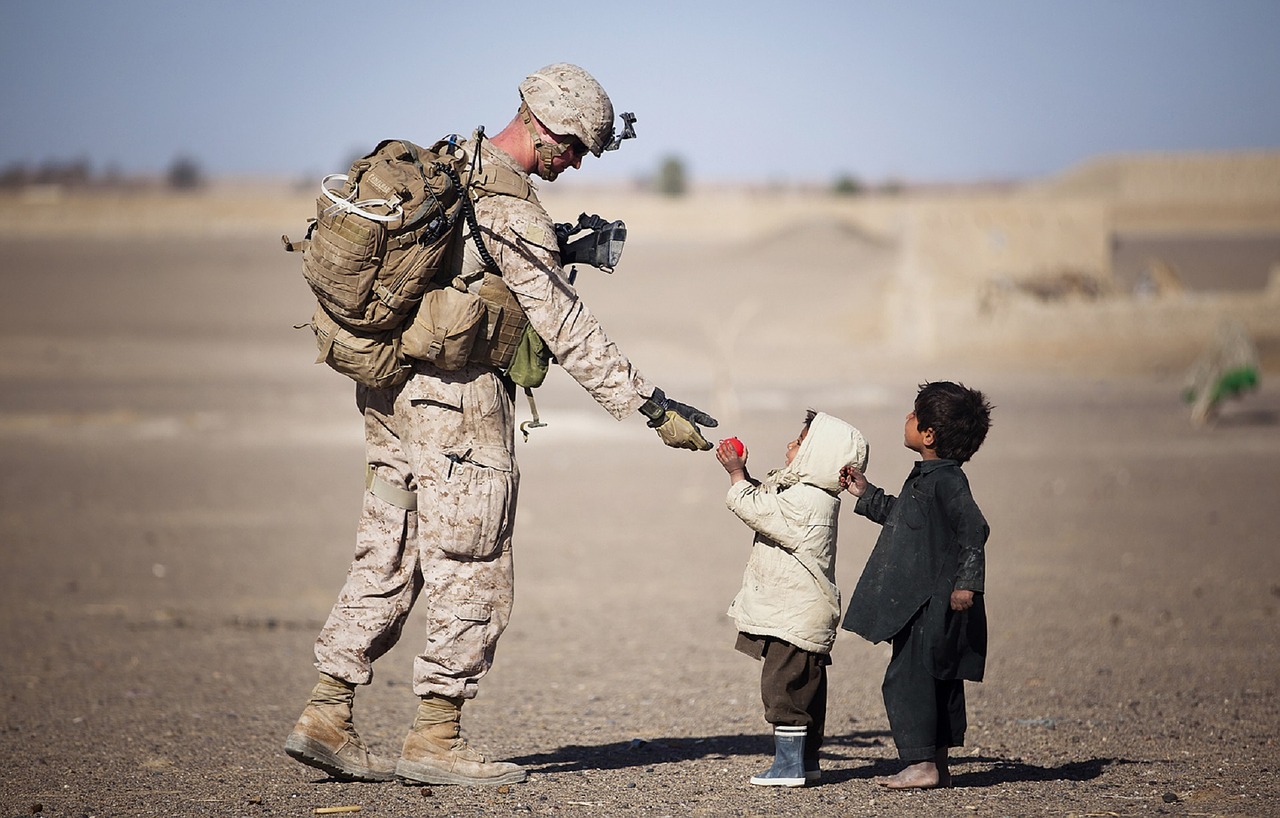Like “love,” the word “respect” is fairly limited. It’s another good example of why the English language can only take you so far, and why we must use other tools in order to understand and investigate these concepts a bit further. You can love your best friend, you can love your kids, and you can love a romantic partner — those words are quite different in each scenario, and many other languages have entirely different words for each type of love. It gets even more complicated when you talk concepts like loving your enemies.
Similarly, you can use the word respect when referring to a superior officer in the military, an elderly woman who has lost her sons in WWII, and you can use it when talking about how to treat a woman at a bar. Some might say this makes the word quite diverse; others might say it waters down its meaning.
At the end of the day, there are two primary types of respect: the respect of fellow human beings, and the respect that is earned.
Universal Respect
The first type is the respect that many parents strive to teach their children — “Don’t steal from other kids on the playground,” or “Share with your brother.” It extends to the respect of the opposite sex later in life — “Get consent,” or even chivalrous behavior like, “hold the door open for her.” In fact, holding the door for others has become a courteous way to show respect to everyone. Universal respect also means helping an elderly person load groceries into their car at the store, or pulling over to jump someone’s car.
This is the respect that every human being — by sole merit of being a human — deserves. It means treating people with compassion, poise and assuming that each person has some level of value and dignity that is worth your time.
When I was in Karen State, deep in the jungle of Burma, one man defined “dignity” not as the way the world perceives you (getting caught naked, for example), rather, he said that a person’s dignity is measured by how much they can serve others. If a woman is raped, in Karen culture her dignity is not at stake, so long as she continues to feed the hungry, provide rest to the weary — that sort of thing. If a man could not save his family from the perpetual violence there, his dignity as a man is not at stake. Many of the Karen have suffered these fates, and yet they continue to serve their communities and neighbors with dignity and grace. No one can take dignity from them, except for themselves.
Operating under the Karen definition of dignity, showing other human beings a universal level of respect is what gives a person their dignity.
There is an extreme side to the new wave of Politically Correct (PC) culture that would seek to standardize and almost weaponize respect, forcing it upon others. Instead of showing others how to respect one another, they seek to demand it. However, even if it’s successful — even if people adhered to all the hollow, recycled platitudes, and stayed away from all the words they have deemed evil — it would never foster a culture of real respect between one another.
In response to the rise of PC culture has been the anti-PC crowd. They are sick and tired of being told what they can and cannot say, since they innately understand that these rules will never evolve into anything meaningful or helpful anyway. However, this crowd often takes it pretty far. They are so tired of being told what to say or what not to say, that they forget the basics of human interaction. They often forget that human beings — even ones you don’t like — are deserving of respect and patience. That being inflammatory behind their keyboards is just the same as being inflammatory in person (though perhaps a bit more cowardly), with no intent other than to piss people off. This sort of juvenile behavior is indicative of the exact same lack of respect that same crowd laments is missing in younger generations.
When I say “deserve,” I don’t mean that they earned it. When I hold the door for someone, I don’t think they have earned anything, nor do I think they need my help. I just show it to them as a cultural sign of respect as a human being. I am telling them that they have value — it’s another form of communication, like a handshake but with more weight.

Already have an account? Sign In
Two ways to continue to read this article.
Subscribe
$1.99
every 4 weeks
- Unlimited access to all articles
- Support independent journalism
- Ad-free reading experience
Subscribe Now
Recurring Monthly. Cancel Anytime.

Earned Respect
This is the respect that many of us have for figures like George Washington or Medal of Honor recipients. We respect people like astronaut Peggy Whitson, who has spent more time in space than any other American. We respect Martin Luther King Jr. not only for the words that he spoke but for the movement he led to back those words up. I’m sure you can think of several “heroes” of your own, whether they are personal friends, celebrities or historical figures, that you respect immensely because of what they have done.
However, while famous figures can inspire and garner all of this respect, interpersonal respect on a one-to-one basis is a lot harder to retain. Real respect is never finally achieved; it’s earned every single day. A lot of the names I mentioned above understood that, at least at some level.
This is the difference between a team leader in the Army whose privates obey him and the team leader whose privates respect him. Rank does not earn respect, it earns obedience, and that is true inside the military and out (in a company with a strict hierarchy, for example). The simple fact of the matter is that there are plenty of Sergeants, Sergeant Majors, Colonels, and Generals who do not hold the respect of their men. Similarly, many children do not respect their parents — they may obey them, but simple adherence to rules does not always equate to respect.
If one strives to earn the respect of those around them every day, they will get it. How do they do that? Service.
A team leader who “leads from the front” is serving his team just as much as they are serving him by following his commands. A boss who takes the time to listen and address the complaints of his staff will have their respect, especially when they realize how seriously he takes their thoughts. A father can earn his daughter’s respect by taking a genuine interest and involvement in her life from an early age — that respect will perhaps be returned one day when the daughter is going out of her way and taking care of her sickly, elderly father as he nears the end of his life.
This has no easy answer; it simply has to be earned every day. When I was a brand new Team Leader in Ranger Battalion, I had to remind myself that every new, incoming private did not know me. They would do what I told them, and they would do it as if their lives depended on it, but they would not respect me until I had earned it. And that long process would restart with every new guy that arrived under my wing — it didn’t matter what rank was affixed on my chest.
More often than not, respect is earned by those who do not seek it. It’s earned by the humble servants who simply desire to contribute to something greater, including the well-being of those around them.

Images courtesy of Pixabay.












COMMENTS